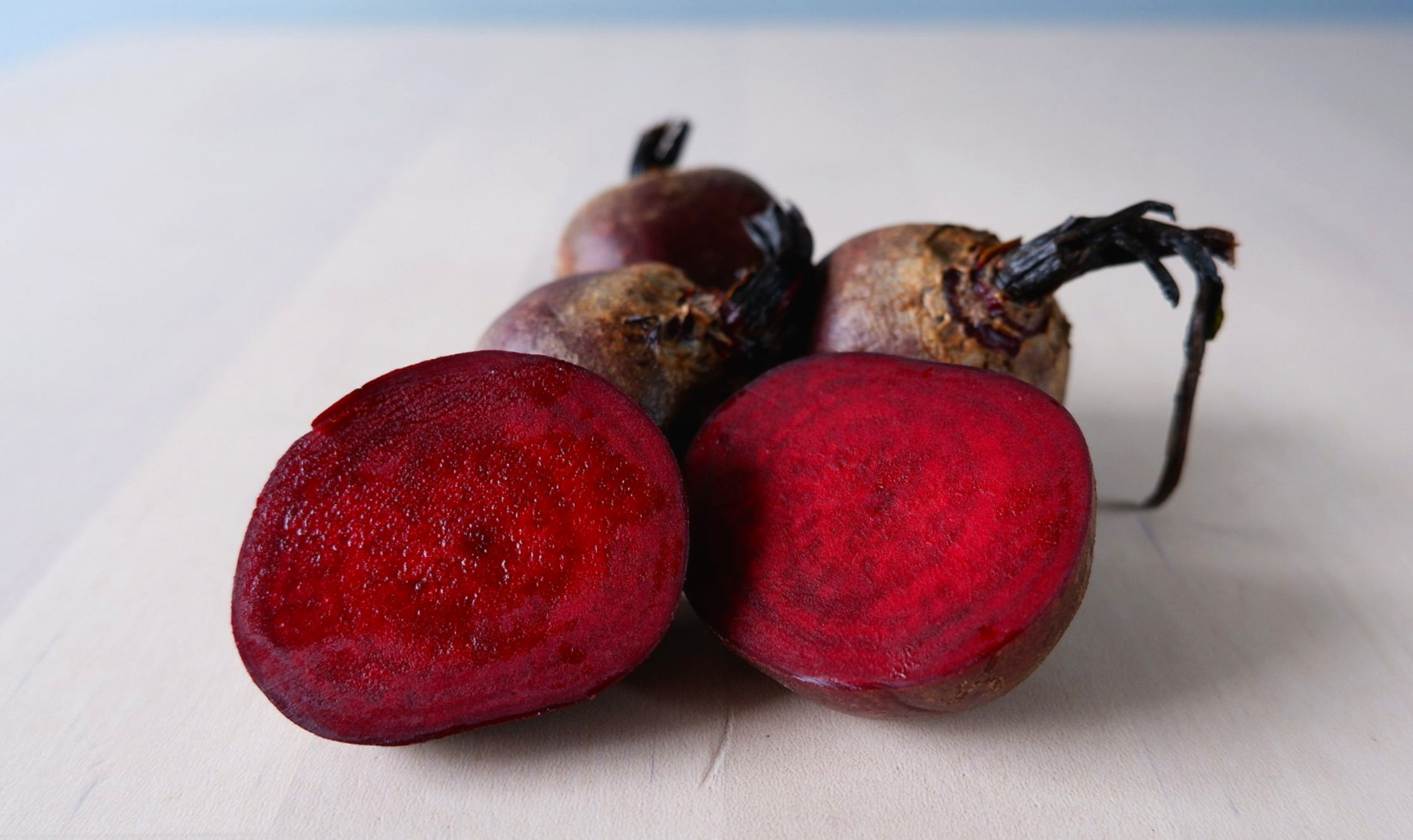Beetroot
It’s got an intense colour - so though it might stain your apron and kitchen tops, it is usually is a good sign in terms of nutrition when it comes to vegetables. Let’s look closer at the beetroot!
Bears. Beets. Battlestar Galactica.
Beets are probably more often featured on one of my favourite tv shows, The Office, than it is on most people’s dinner plates. It’s a really fun vegetable to make a purée of for example, because of its strong colour. But is it good for us? Let’s have a look.
Beets are high in fibre. Great for your digestive system and bowel movements, as well as helping you lose weight should you desire it. They are good sources of vitamin B9, also called folate (important for pregnant women, and for tissue growth and cell function), as well as manganese, potassium, iron and vitamin C. It also contains nitrates, which can enhance physical performance - and is often used (frequently in juice form) by people who do high-intensity endurance exercise.
However, beetroot might not be the best food for someone who reacts to FODMAPs (carbs that are resistant to digestion, I’ll talk more about FODMAP in the future) - as they are a source of fructans (a carb classified as a FODMAP).
The most common pigment in beetroot, betanin (which creates the strong red/pink colour), is believed to have several different health benefits, most notably it has natural antimicrobial activity - and can actually be used as an antimicrobial food preservative!
If you are prone to kidney stone (which I realise is hard for many of us to know until we experience it, which I hope none of you do!), then you might want to keep your beetroot intake moderate. They contain high levels of oxalates, which can contribute to kidney stone formation.
On another note, be aware that the colour in beetroot is so strong that it can actually make your pee redish in colour! Red pee can obviously be quite scary to see, so if you otherwise feel well, then maybe think about whether you recently ate some beetroot - in which case it is completely harmless.
So a very nutritious vegetable - but maybe not the new star of the show for every cook.
Do you like beetroot? How do you use it? Message me on Instagram @TheFromScratchBody!
